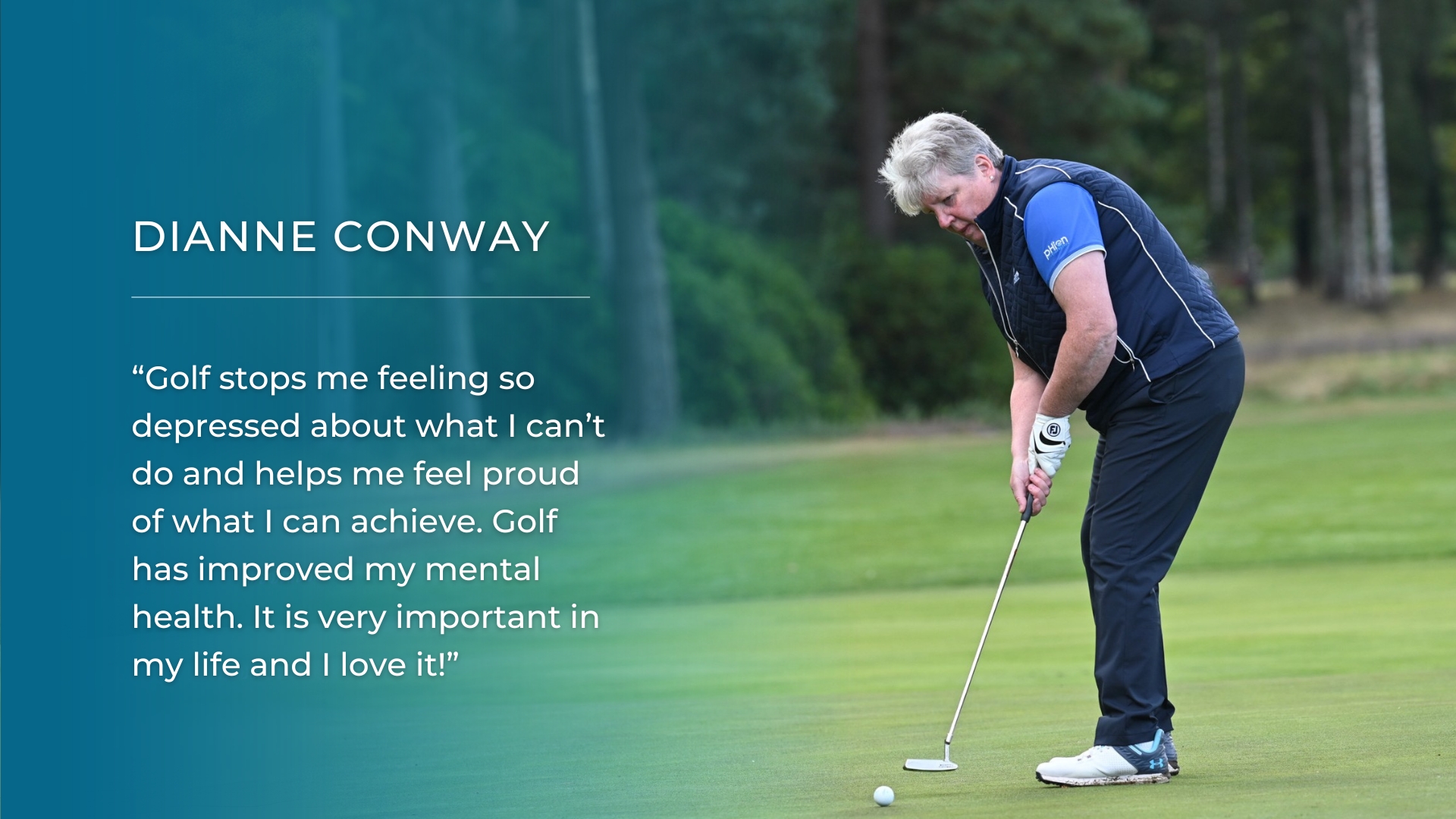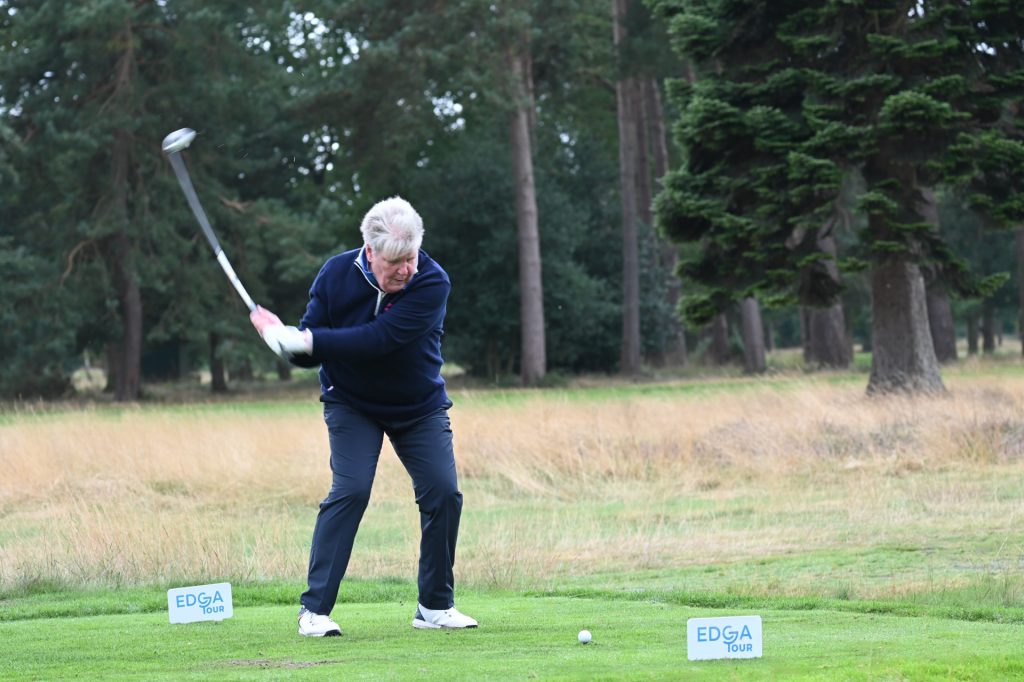
“I just can’t emphasise enough how good golf is for your mental health. I really can’t,” says Dianne Conway.
“Golf stops me feeling so depressed about what I can’t do and helps me feel proud of what I can achieve. It is a place where I am treated as an equal and enjoy the camaraderie and competitiveness of the game. It is very important in my life and that’s why I love it.”
This genial and intelligent golfer from Northern Ireland would go to the course nearly every day if she could, but a serious injury to her lower left leg suffered in the line of duty in the late 1980s still causes her pain to this day, and she therefore must ration how much she plays. A disturbing memory can fire from the injury, but playing the game is also an antidote to the pain, and surely a sign of her resilience.
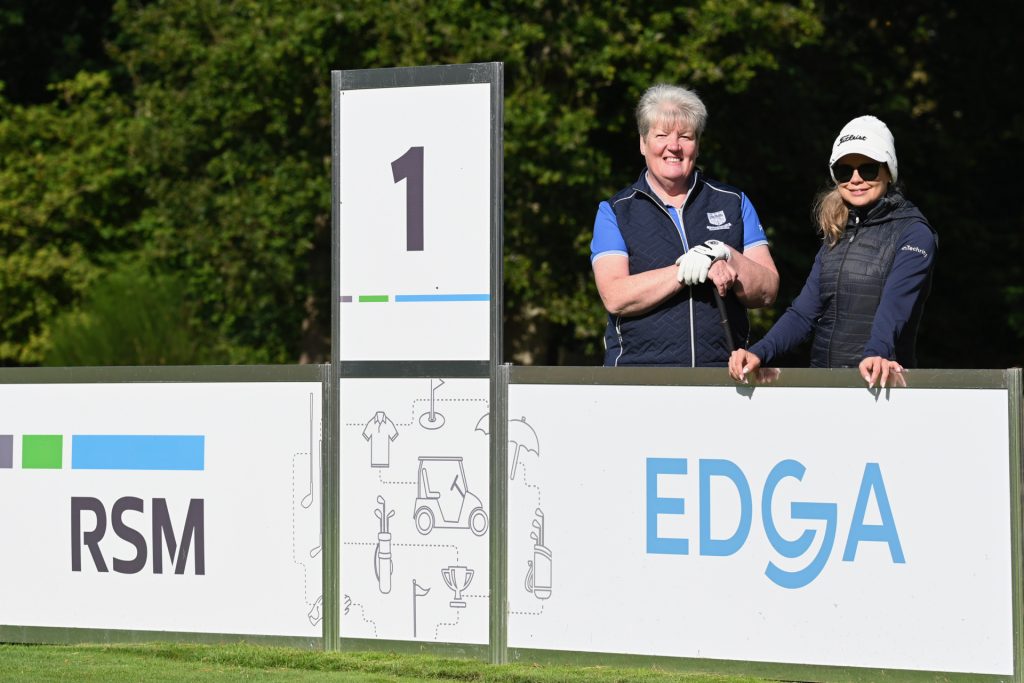
Certainly Dianne will tell you that above all she likes to just get on with life in front of her, to seize the day. She was still working on her game recently while undergoing tests for a genetic kidney condition, waiting to hear the best course of action. As fate deals these cards of uncertainty, golf is one of the joyous constants in the life she shares with her wife Liza and their dogs Cooper, Murphy and Lexi.
Her obsession with the game makes Dianne laugh: “You forget about whatever’s going on in your life. I could actually forget I need to go home, I really could.
“You just get out there. Even when at the short game area at the club I have to set an alarm on my phone. Even though my foot is sore from standing, I still stay there for more than 35, 40 minutes. I don’t know what it is about hitting that golf ball, it’s just great.”
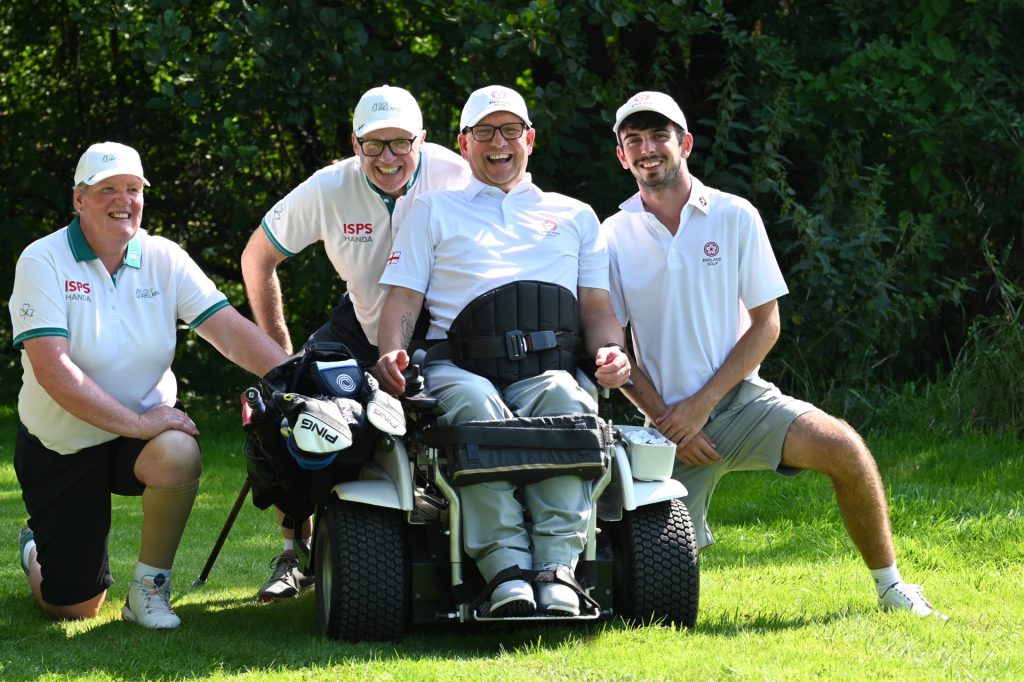
Dianne then offers: “I think it’s the combination that you can be an individual, you can be yourself in golf, but you can also then be out in a three-ball and chatting with your partners, or as part of a team. You can discuss different parts of your game, enjoying the fresh air, and it’s no matter if you have limitations in walking.
“If I walked more than nine holes [Dianne can use a buggy when she plays], I wouldn’t then be able to manage normal things in life like shopping and walking in town. I’m very restricted in what I can take in terms of pain medication. But when I’m at that golf course, all I’m thinking about is hitting that wee white ball and doing my best.”
Dianne has orthopaedic and mobility issues caused by permanent foot damage: after being dragged by a stolen vehicle when serving as a police officer, a job she loved until her retirement in 2015.
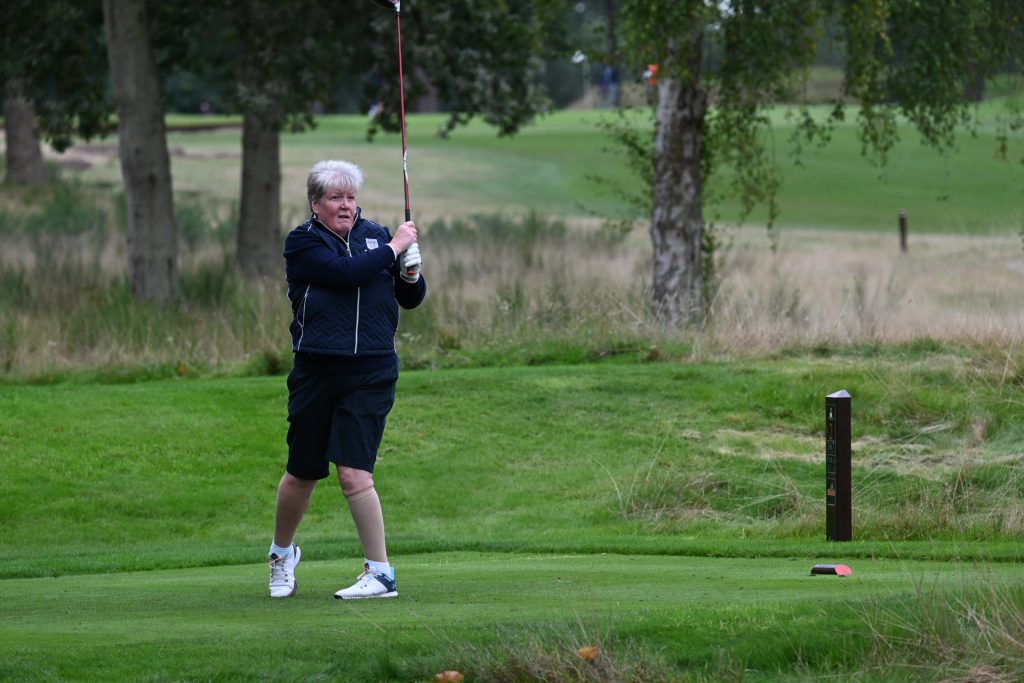
The camaraderie and trust with colleagues is what she remembers with pride. Dianne was keen on tennis and hockey and loved being part of sporting teams too. In hockey she rose to play for Ulster and then the national Ireland team in the indoor format as a goalkeeper, taking part in the European Championship in Germany. These activities shaped what Dianne terms a “fearless” streak that has been so important after her injury and now following retirement. It has encouraged her to further embrace life at the golf club she loves, Shandon Park GC in Belfast; the golf course and all the friends she has made there mean so much to her.
“I would say I was fairly fearless, yes,” Dianne continues. “So in indoor hockey, you have to have no fear because you must run out at short corners. You’re very much in the game, fast and furious and nimble on your feet and coordination; you have to be fearless, and just have confidence in your own ability.”
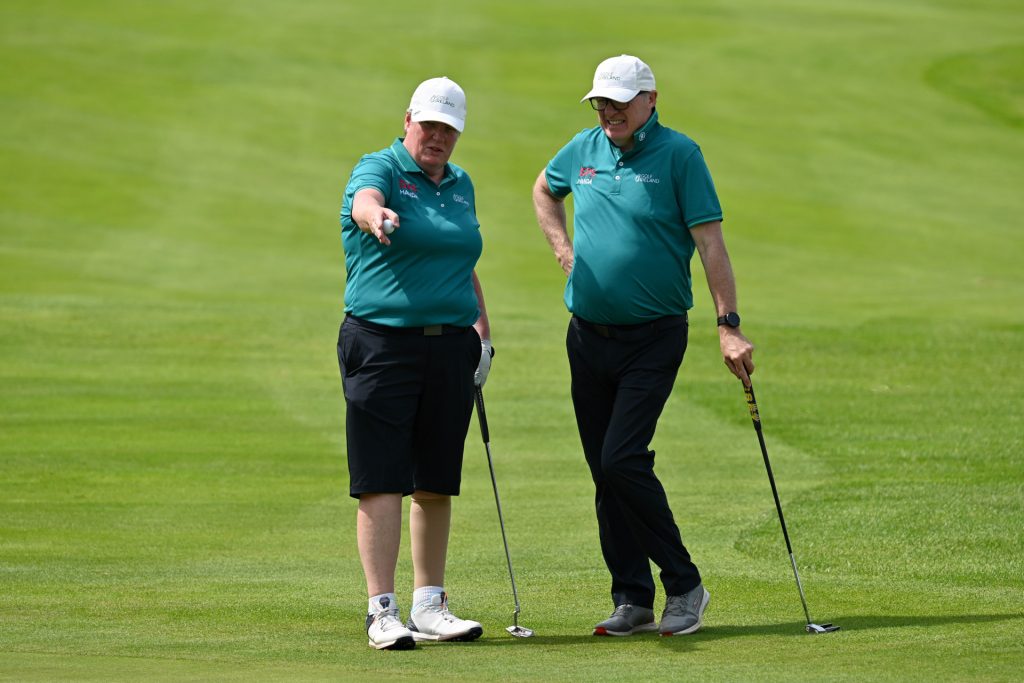
Teamwork can make you a winner in sport, while in the workplace for Dianne, teamwork was also absolutely crucial.
“You can’t turn your back on things. My confidence grew and my ability to work on a team and get on with people just grew and grew. To be able to take instructions, be able to listen to people, very much so. So I owe the police a lot for who I am today.”
More lately, this inner courage has allowed Dianne to approach competitive G4D (golf for the disabled), including representing her country once again in 2024, this time with a golf club rather than a hockey stick, just two years after life-saving surgery was needed following the discovery of her kidney condition; this after she suffered from sepsis in 2021, and was at that time “two hours from kicking the bucket”, as Dianne puts it. A special tube had to be fitted into her kidney to drain it and a catheter was needed, completely curtailing her movement, including her golf of course.
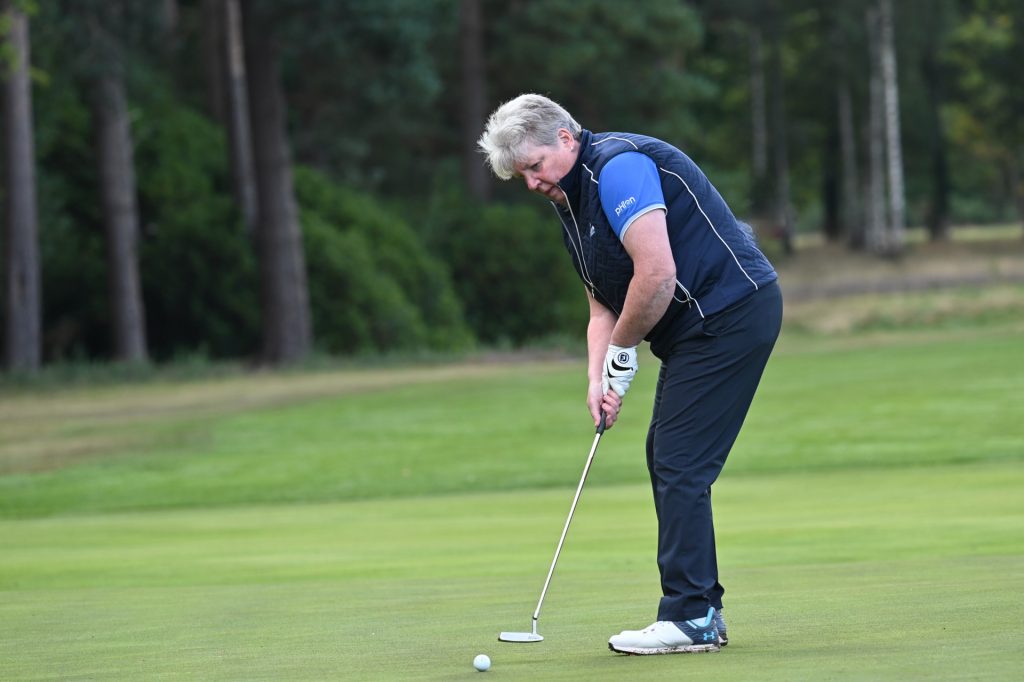
At least with her ankle Dianne can manage its care, while she confides that her kidney “mentally wrecks” her at times. “For my mental health, the golf is so important because I lived for eight months there with a tube in my back, and I thought I was never going to get back to playing golf.
“I trust what they [the surgeons] are going to do, but it just puts everything in perspective. That’s why achieving and playing in EDGA events and then qualifying for the RSM European Play-offs, and playing for Ireland in the European Championship, made such a big emotional impact on me after what I’d been through. If you had said in May 2022 when I had a tube in my back, ‘well you’ll be playing for Ireland in 2024’, I would have said get on, there’s no chance. So yes, that’s what made such a big impact on me. I think being able to do it was great.”
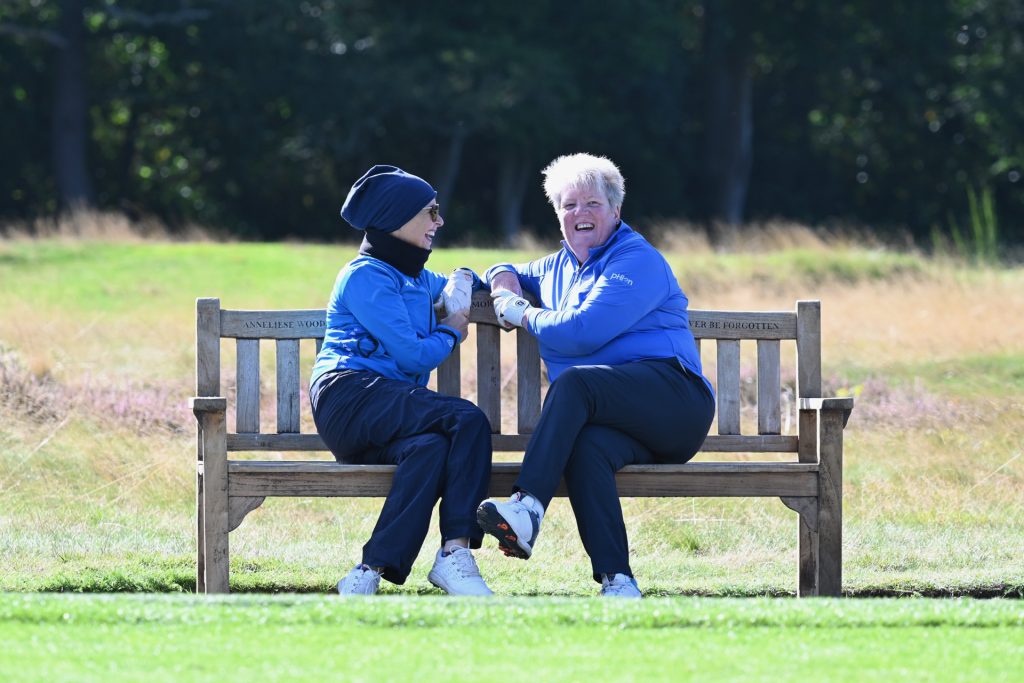
Dianne is remembering first the 2024 EGA European Teams Championship for Golfers with a Disability in which she was selected to play for Ireland in Germany, after impressive results in the Irish Open and Scottish Open of that year, both supported by EDGA.
Travelling alone over to Scotland, Dianne used her long-held tactic of entering an unfamiliar environment “just as if you’re popping into Marks & Spencer”. Within minutes she was saying hello to people and starting to make new friends, a social scene which is a by-product of a great many of the 120 EDGA run, supported or badged tournaments in a year. Competitive they are on the course but a friendly and welcoming environment is apparent, where golfers with disability can start chatting with each other and sharing trust and a mutual respect.
Later in 2024 Dianne played in the RSM European Play-offs, “a great honour” she said to compete in the women’s category of this prestigious G4D tournament held at North Hants Golf Club in England.
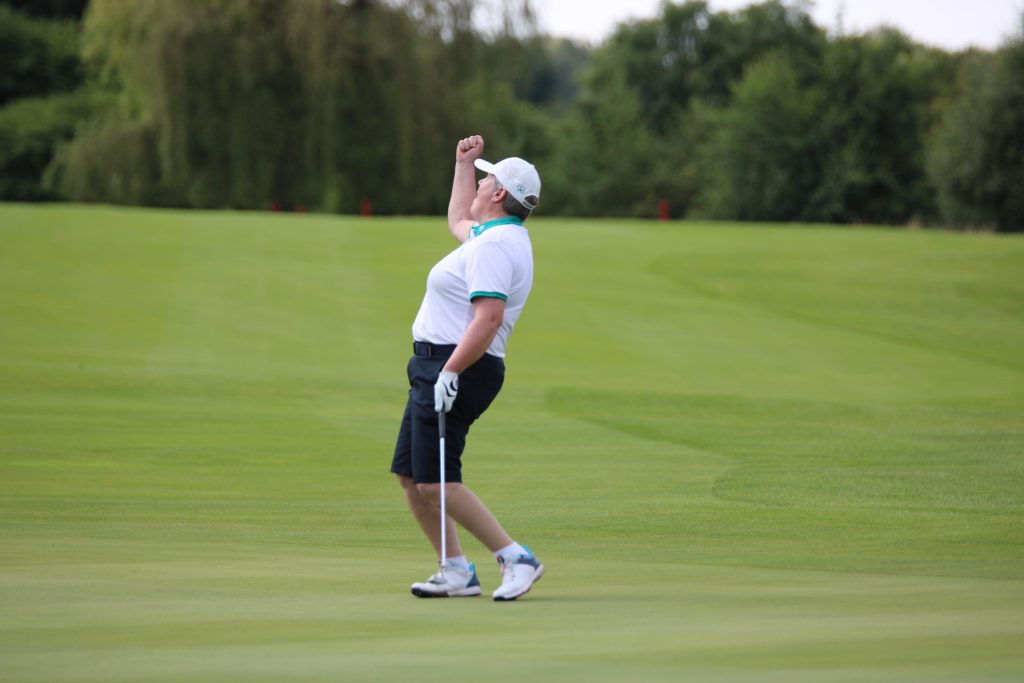
Dianne is a keen supporter of the inclusive work of Golf Ireland, and Ireland’s Disabled and Inclusive Golf Association (DIGA).
“And more and more people are getting involved because they’re not being judged. You’re not being judged because you have a stoma bag or because you have issues, and you don’t have to wear a big bandage on your knee to say, I’ve got a bad knee.
“That’s one of the things I had to overcome. I have lymphedema in my left foot, so I wear a lymphatic stocking and someone said to me one time, oh, I thought you had a wooden leg. So for months I wouldn’t wear shorts. And I’m thinking to myself, catch yourself on Diane. At the end of the day, you are who you are. But yes, the DIGA events are amazing and the work being done, to introduce people with a disability to golf, to have a group able to go out and play, where nobody’s judging you, that’s fantastic.”
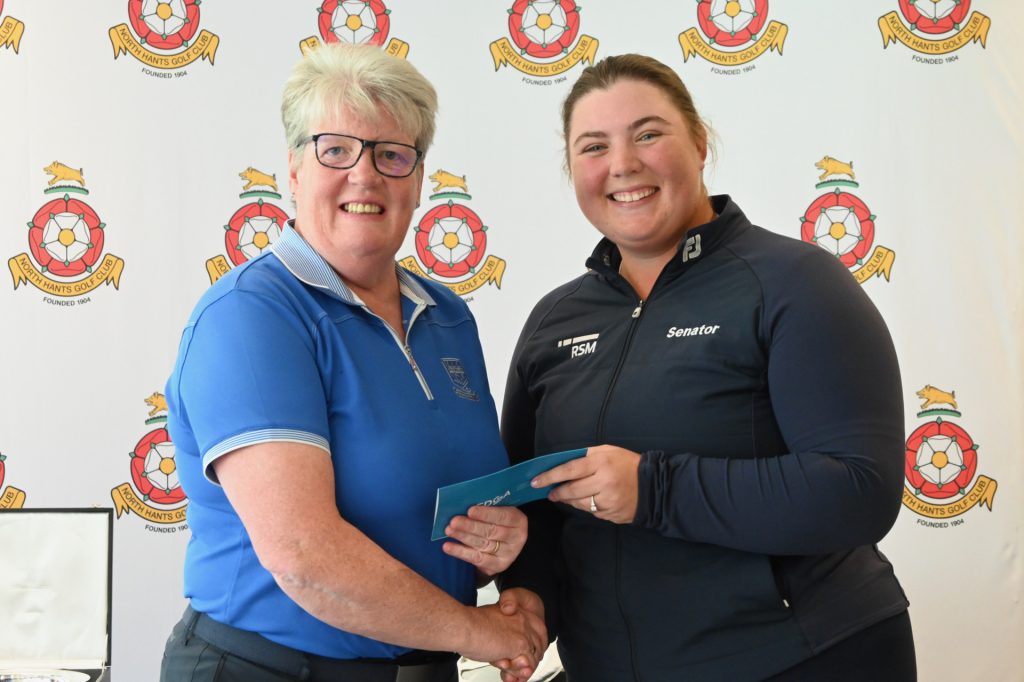
As for her own golf, Dianne fondly remembers trying it for the first time on holidays in Scotland at Butlin’s holiday camp when she was around 13, encouraged by her Dad to try pitch and putt; where he told her to get the first putt “in the bin lid” [imagining the circumference of the lid of a trash can], and telling her never to three putt if she could help it on the course.
Her one regret was not realising sooner that golf was for her, only joining Shandon Park in 2002 at the age of 37. Dianne would lower her playing handicap to 7.1 but she feels she may have been even more competitive had she joined a club when younger.
“I would probably class myself as coming from a working class background and probably thought a golf club at the time, through my own ignorance, was a wee bit ‘hoity-toity’ [where there is a feeling of superiority], but that wasn’t the case at Shandon Park. I’ve made friends for life there. The club is in my blood now and yes, I love it.”
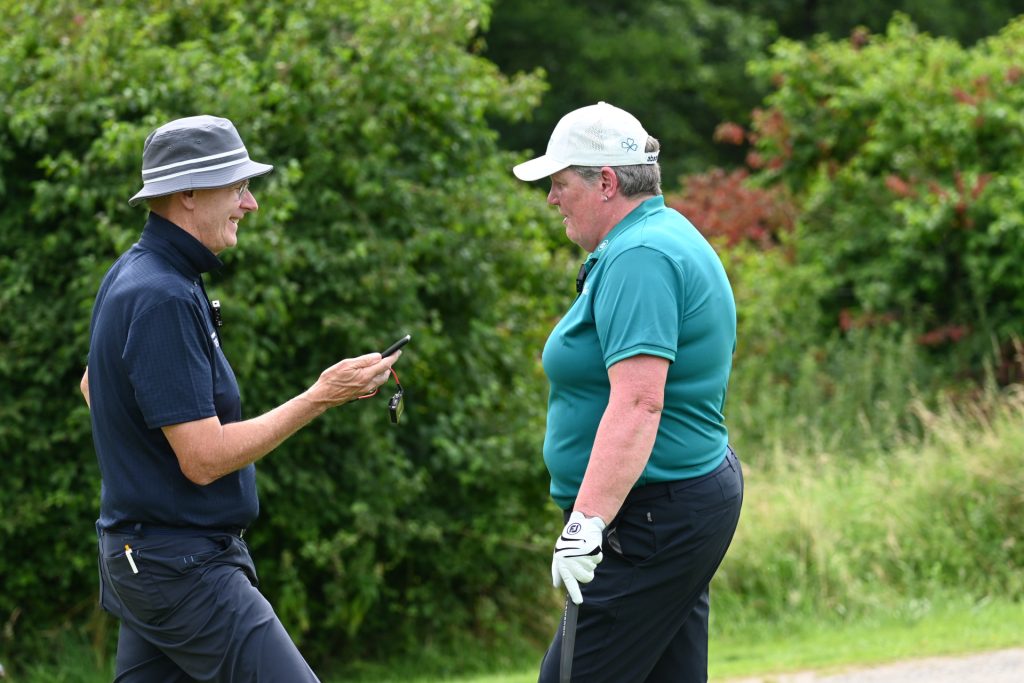
An amusing story she recounts is that to join Shandon Park she had to undergo an interview with the lady captain. Not knowing that this was really just a getting-to-know you-visit, Dianne was nervous, and some workmates raised the stakes when as a joke they told her that at such club interviews she was sure to be quizzed about four of the first 12 Rules of Golf.
“So I sat in the car park for 45 minutes trying to learn the Rules of Golf. And when I got in, the Captain said hello Dianne, will you play in the teams? Will you be socially active in the club? Absolutely, yes. And I was quite disappointed after 20 minutes. I said, are you not going to ask me anything on the Rules of Golf. And they said oh no, not at all. As long as you’re going to play in teams and join in we’ll get you a handicap. And I’ve never looked back, so it’s been great.”
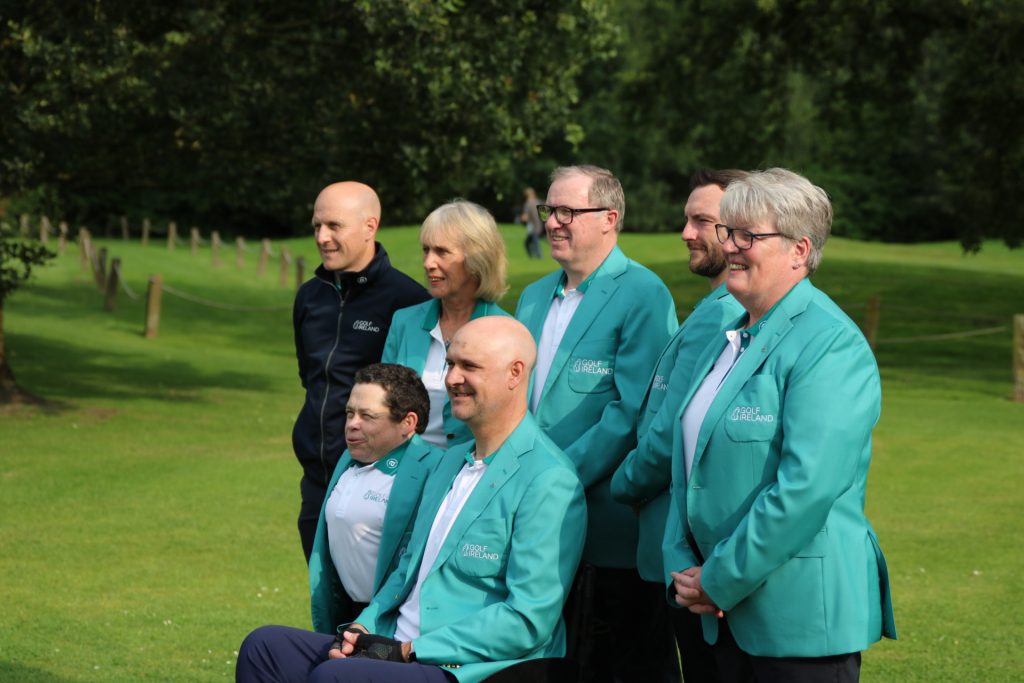
Although a competitive player, it is clear that for Dianne golf is just as much about those who play the game as the scores. This is a person who is interested in people. Dianne works for the post office part-time three days a week to keep her off the course and rest that leg. She has made many great friends both at her home club and through recent G4D competitions. In golf, she believes, everyone has something they can bring to the table. “I feel I have a levelheadedness and I know my worth, while knowing that everyone is equal,” Dianne says. “There’s nobody better than anyone else in this world, regardless of whether you have a fancy car outside the door or no hot water, no central heating. Really, we’re all the same. That’s how I look at it.”
That combination of being fearless but humble, is a rare quality to aspire to. “Confident not cocky” as Dianne puts it. It’s a way of opening doors, not just for yourself but for many others too.
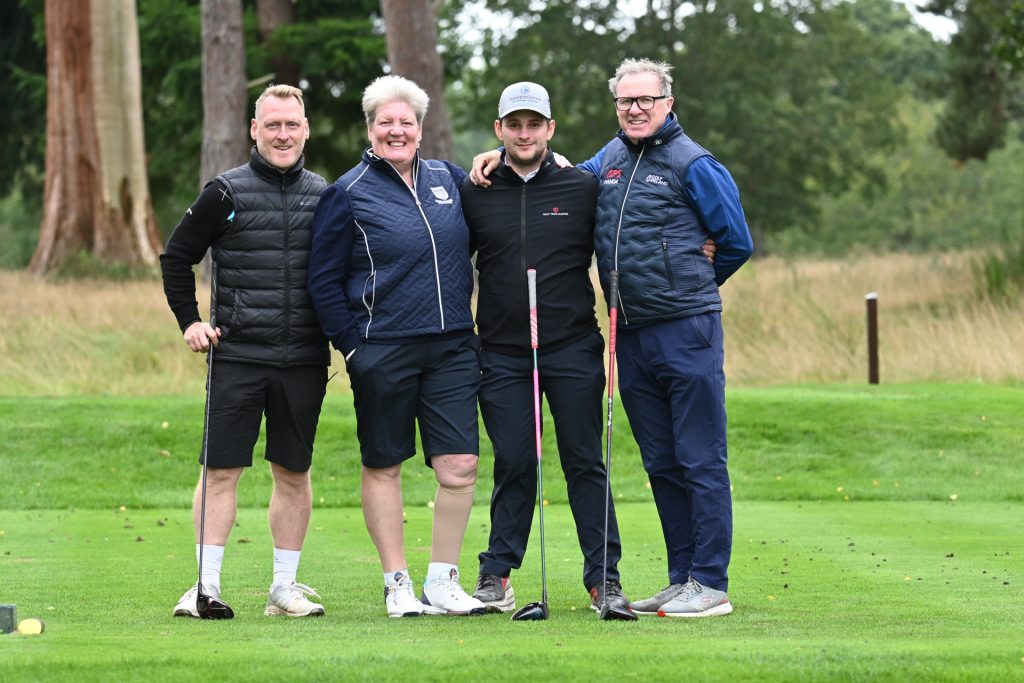
NB: When using any EDGA media, please comply with our copyright conditions


